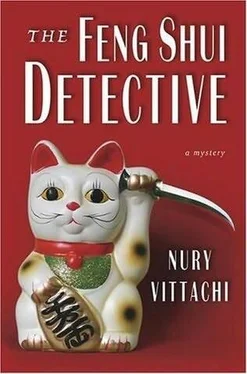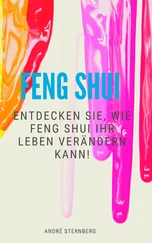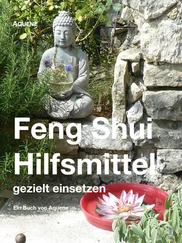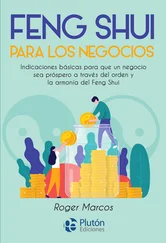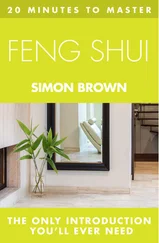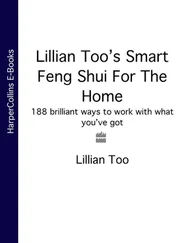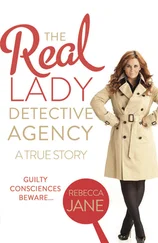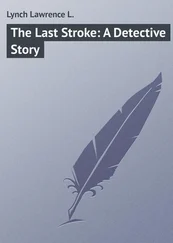‘The first is long life, the second is reputation, the third is rank, and the fourth is riches.
‘Those who have these things fear ghosts, fear men, fear power, and fear punishment.’
Blade of Grass, the things you want are the things you do not want.
Hear the ancient story of the man who knew what he wanted.
He was walking by the riverside when he saw an Immortal. The man was very curious. He looked at the person from Heaven.
‘I suppose you want something special from me?’ said the Immortal.
‘Yes,’ said the man.
The Immortal touched a stone with his finger. It changed to gold. He said: ‘You can take.’
The man did not go. He stayed.
‘Do you want something more?’ said the Immortal.
‘Yes,’ said the man.
The Immortal touched three rocks nearby. They turned to gold. He said: ‘You can take.’
But the man still did not go.
The Immortal said: ‘What do you want? What is more valuable than gold?’
The man said: ‘I want something very ordinary.’
The Immortal said: ‘What do you want?’
The man said: ‘Your finger.’
From ‘Some Gleanings of Oriental Wisdom’,
by C F Wong, part 112.
‘You have to answer a question for me, Wong-saang,’ said Biltong Au-yeung, leaning over the railing of the ferryboat, and shouting over the rushing of the wind and the churning of the engines. ‘Why does everyone love the Star Ferry? Why do I love the Star Ferry? It’s old, grimy, slow, crowded, out-of-date, and the terminus buildings are cramped and unappealling. Yet there’s something almost-almost miraculously refreshing about it. Even in this city where everyone is rushing-rushing-rushing-even worse than Singapore, no?-people will make a special effort to put the Star Ferry into their schedule. Why do we do this?’
‘Yeah. It’s really kinda magical,’ said Joyce.
It was dusk in Hong Kong. The green-and-white boat, shaped like a woodlouse, bobbed gently up and down as it lazily traversed one of the world’s busiest waterways. They were only halfway across Victoria Harbour, yet already a dozen boats had crossed their path, some appearing to veer dangerously close.
So transfixing was the 360-degree panorama that Joyce eventually lowered her camera and just leaned on the wrought iron railing, soaking up the scene, and occasionally being showered by the spray. The variety of vessels visible was stunning. There were huge ocean liners, like white skyscrapers lying on their sides; there were freight ships, their decks piled high with multi-coloured cargo-containers, kindergarten bricks for giants; there were lighters topped with cranes, unloading cargo from ocean-going vessels on the edges of the central harbour; there were tiny tugboats, dragging large boats on what seemed to be ridiculously fine bits of string; there were old wooden Chinese junks, their hulls oddly upturned at each end (Joyce noted that they were powered by engines-not a single one had the romantic bat-wing sail that you saw on Hong Kong pictorials); there were sleek, aerodynamic jetfoils skimming futuristically across the top of the water with the sound of jet aircraft; there were tiny rowing boats, one of which had a figure with a traditional cone-shaped hat leaning over the edge, fishing with a string and a hook, but no rod; and there were the grey marine police boats, looking like water insects with spiky antennae protruding from their bridges, uniformed men standing stiffly at their bows.
‘Not magic,’ said C F Wong. ‘Good feng shui.’
‘Go on, fill us in then, please, C F,’ asked Joyce.
‘The harbour and the Star Ferry are the feng shui centre of Hong Kong. It is not the map centre. It is not the geography centre. But it is the true centre. Hong Kong island, on this side, ten times smaller than Kowloon peninsula on that side. But Hong Kong island has very great ch’i energy. This balances the ch’i energy of Kowloon, also very strong. Look at the mountain. The mountain, the stars, the water-all combine to make ch’i energy flow into a pool on north side of the island.’
Joyce leaned over the lower deck railings and saw, behind them, the Peak, which stood like a huge green wall behind the buildings of the central part of Hong Kong island.
‘The five ch’i elements are all here. Where we stand on this boat,’ the geomancer continued. ‘Water. It is under our feet and all around us. Wood. The boat itself is mostly made of wood. Wooden benches and wooden floors. Metal. The frame of the boat, the engine, the funnel. These are all metal. Fire. There is a fire in the centre of the vessel. Makes it move. Most of the day the boat is in the direct line of the sun. Soil. All around us on both sides of the harbour, are huge pieces of earth. Not just land. Big mountains of earth. Such big amounts of elemental energy can be bad. But here there is balance. It is not perfect. But it is quite good. The balance is quite okay. This is why many people feel strong when they are on the Star Ferry.’
It was dusk and the neon lights of the Hong Kong cityscape were flickering into life around them. The purples, reds and yellows of the neon logos were reflected as long, shimmering streaks in the water. To the west, the last light from the setting sun was captured as a thousand pieces of orange fire on the crests of the waves.
Joyce felt the wind-borne spray cooling her face and she was happy. She no longer felt that the feng shui man’s world was one she could never enter. She was beginning to realise just how big her own world really could be.
Wong-whether because of the high ch’i energy of the location or just because he was in a holiday mood, Joyce did not know-was in an unusually talkative mood. He had bought a book of aerial photographs of the city, and was happily pointing out large-scale feng shui factors visible from on high.
‘ Hong Kong island is very good example of yin and yang, the two basic forms of elemental energy. Hong Kong north part is very yang. Noisy, busy, active, crazy, everyone running all the time. Then there is a mountain in the middle. Then Hong Kong south part is very yin. Quiet, lots of trees, restful, more homes, less offices. The houses are short, not tall, there are beaches instead of docks, you see, quite different. This is very obvious if you know something about yin and yang. But more interesting to the feng shui master is the influences of east and west on the island…’
‘Beaches? Great. When are we going? I could just do with a couple of days on the beach. Make this the perfect holiday.’ She wondered what Hong Kong guys were like. What was the name of that movie star? Fat somebody?
‘This is not holiday. This is work. Please to remember,’ said Wong.
‘There’s not much work,’ said Joyce. ‘We’re only gonna buy a house. And Bill already knows which one. Won’t take long, will it? Is it big? Does it have a garden?’
Biltong Au-yeung, a bespectacled executive in his late thirties, lowered his well-groomed but somewhat overweight body onto a wooden bench opposite Wong. ‘Let me tell you about buying property. It’s a bit different here than in other countries.’
He explained that nearly all homes were small flats in high-rise buildings. If you wanted a newly built one, you would look at the advertisements in local newspapers to see what developments were being started.
From his bag, he pulled out a folded newspaper and showed them a full-page advertisement from the previous day’s newspaper telling readers that a residential complex in the rural area was to be sold shortly. It showed Dragon’s Gate Court as a complex of tower blocks, with thick foliage draped over every balcony, surrounded by shops and gardens. There were no other developments nearby. Lush rolling hills stretched out on one side, and a tranquil blue sea dotted with white sailing boats ran to the horizon on the other. It was sort of paradise-for-skyscrapers.
Читать дальше
